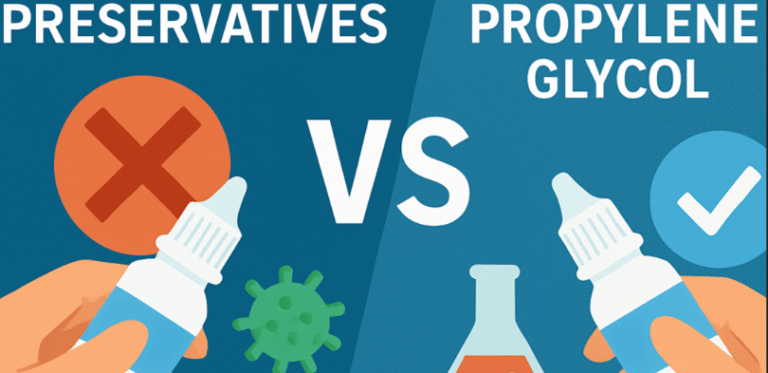Post Cataract Surgery Concerns: Was there an Issue?
The Primary Goals and Benefits of Cataract Surgery
Cataract surgery is a medical procedure that can also restore a patient’s ability to experience clear vision. There are potential complications with any procedures, especially associated with neglected cataracts that have been allowed to hyper-mature. If left untreated, they can lead to severe vision impairment or even blindness. Cataract surgery improves one’s quality of life and safeguards against possibly irreversible damage, emphasizing its proactive role in preserving ocular health and preventing more serious visual complications.
The Expectations vs. Reality
Communication is paramount to form expectations of what is possible, and what is not. Navigating the post-cataract surgery landscape requires a realistic understanding of the possible outcomes. While the procedure is transformative, it is essential to manage patient expectations to reality and tailor outcomes to what patients prefer. Clear vision can be indeed restored, but this does not necessarily equate to a glasses-free experience after surgery. Would you like to wake up and see with glasses? Some patients may actually find increased reliance on glasses for certain ranges to enjoy their clear vision. This is influenced by individual eye characteristics and their chosen artificial lenses. Expecting vision equivalent to that of youth with perfect 20/20 at near, intermediate, and far is often unrealistic, even with the best technology and lenses available. Was the vision optimized for distance, intermediate, near, or a combination? The immediate postoperative period within 4 weeks may not yield crystal-clear vision; it takes time, typically ranging from a few weeks to a few months, for visual acuity and tear film to fully stabilize. Patience and a realistic understanding of these outcomes is key to a more post-cataract surgery satisfaction. Unrealistic expectations for unattainable superior vision after cataract surgery is a red flag for surgeons to proceed, as the patient cannot be satisfied, and of course we cannot restore vision to when you were a child.
Managing Blurry Vision After Cataract Surgery
Blurry vision after cataract surgery is a common complaint, particularly in the first few weeks, for various reasons. There is a healing period in which vision may not be immediately clear after surgery. Patience is the solution to allow the patient to adapt to new lenses as vision gradually improves over time. This is a process known as “neuroadaptation.” For example, swelling and inflammation of the cornea contribute to temporary blurry vision. Adhering to the prescribed post-operative eye drop regimen will help. Even if patients feel their eyes have improved, completing the full treatment plan as directed by the doctor is essential for ensuring the best possible outcome and a clearer postoperative vision.
While certain lenses are tailored to correct specific distances, individuals who opt for basic non-premium lenses might experience persistent blurriness simply due to refractive error such as uncorrected astigmatism. Fortunately, the solution lies in obtaining prescription glasses tailored to the range or ranges causing difficulty. For patients seeking an alternative solution, laser vision correction such as LASIK or PRK stands as a viable option for qualifying patients who want clear distance or near vision.
Dry Eyes and Irritation Post- Cataract Surgery: Tips for Relief
Experiencing dry eyes, irritation, or redness is likely the single most common challenge following cataract surgery primarily attributed to the healing process of the cornea and the disruption that the procedure causes to the tear layer. This dryness may manifest as tearing, redness, increased sensitivity to light, irritation, or a temporary loss of focus. Fortunately, recognizing and managing dry eyes post-surgery is well within reach. We ideally start treatment before the surgery to optimize the tear film. Incorporating daily warm compress sessions and regular use of artificial tears is effective in alleviating dry eye symptoms and promoting a healthy tear film and a more comfortable healing process. These simple yet targeted measures play a crucial role in obtaining more accurate preoperative measurements and reducing this common postoperative challenge, ensuring a smoother recovery and enhanced overall comfort for patients. Additionally, it is crucial to use any prescription eye drops as instructed to prevent inflammation or infection that could result in further irritation.
Posterior Capsule Opacity (PCO): Symptoms & Treatment
Posterior Capsule Opacity (PCO) is characterized by the natural build-up of proteins like a film on the artificial lens. This can manifest as blurry or foggy vision or glare, reminiscent of the early stages of cataracts. The onset of PCO may vary, occurring anywhere from a few weeks to several years after the surgery. Fortunately, addressing PCO is a straightforward process. A laser procedure called YAG Capsulotomy can efficiently clear the protein build-up, restoring the lens to its original clear state. This minimally invasive procedure offers a swift and effective solution, allowing individuals to regain optimal vision.
Posterior Vitreous Detachment (PVD)
Posterior Vitreous Detachment (PVD) is when the gel-like vitreous humor inside the eye separates from the retina. It can occur naturally or Cataract surgery can sometimes trigger this detachment. This physiological change can manifest changes in the refractive index of the eye and disturbances to the retinal surface. As a consequence of PVD, patients may experience an increase in floaters, flashes of light, and intermittent blurred vision. The symptoms associated with PVD are dynamic and evolve over time. While the initial postoperative period may be marked by noticeable blurry vision, particularly in the first few months, patients often find that this gradually subsides as the vitreous adjusts to its new state. It’s important to note that floaters may linger beyond the immediate recovery period, and in some instances can be permanent. Often symptoms restore themselves, or may require surgery such as laser vitreolysis or vitrectomy to help symptoms.
See Your Physician for Severe Post-Operative Complications
While cataract surgery is generally very safe, patients should pay close attention to potential signs of rare but severe complications that necessitate immediate medical intervention.
-
- Persistent or Severe Pain
-
- Sudden or Progressive Vision Loss
-
- Persistent Unusual Ocular Discharge
-
- Shadow Over Peripheral/Central Vision
-
- Sudden Increase in Floaters or Flashes
Recognizing these distinct symptoms and seeking timely medical assistance is crucial for optimal post-cataract surgery recovery and long-term eye health. If any of these signs manifest, do not delay in reaching out to your healthcare provider.
In the end, if you are still unhappy we are to help. We are here to help to assess and define where, why, and how the problems you are experiencing persist, clarify expectations and determine appropriate solutions.







